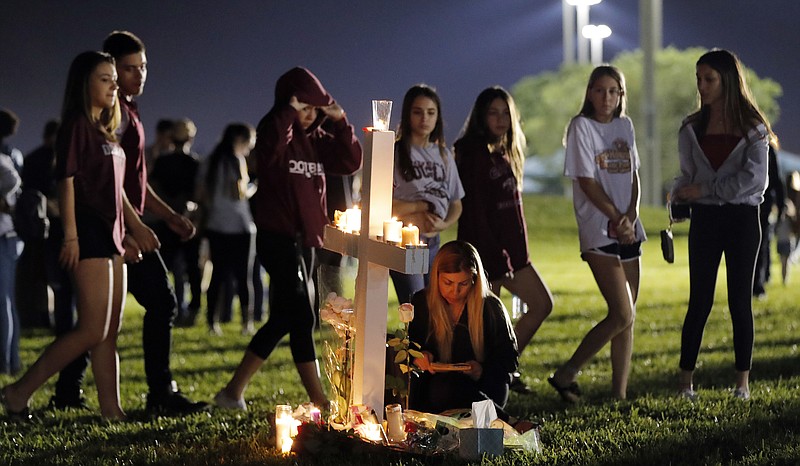In his poem "The Second Coming," William Butler Yeats wrote:
"Things fall apart; the centre cannot hold;
Mere anarchy is loosed upon the world,
The blood-dimmed tide is loosed, and everywhere
The ceremony of innocence is drowned;
The best lack all conviction, while the worst
Are full of passionate intensity."
Yeats wrote those words in 1919 after the end of World War I. They are grimly relevant today with the slaughter of innocent people in wars and terrorism. But that is not the only reason.
America has a long history of national confidence, the belief that whatever problems confront us, we have had the will and the strength necessary to meet those challenges.
In other words, since the founding of our country, tour "centre" has held.
It held through the rebellion that enabled our independence and the marvelous expansion from one ocean to another. In more than two centuries America became a rich and powerful nation thanks to countless inventions, scientific achievements and a system of government that reflected the founders' institution of freedom and constitutional rights.
At the same time America became a giving nation, sending aid to people in other countries even as we enacted laws that created a high standard of living, and programs to help those who needed it.
Yet now our "centre" seems tenuous, at risk of slipping away.
The attack at a Florida high school is the latest in a string of massacres at schools, churches, nightclubs and outdoor concerts. Scores of people - including 20 first-graders at a Connecticut elementary school! - have been killed by a weapon designed for warfare.
The Senate is considering tougher background checks to prevent sales of combat weapons to people who don't qualify. Whether Congress will follow through is unclear, given its craven responses to previous attacks. It would also be helpful if fewer members worshiped at the altar of the NRA, or "No Responsibility [at] Anytime."
Unfortunately, mass gun deaths in various venues are being overshadowed by a more ominous development that has put our system of governance at risk. The problem is two-fold: Russia declared war on America by interfering with the 2016 presidential election. And President Trump's impotent response has rendered him a failed leader when muscular leadership is crucial.
Trump is not just in thrall to Russian president Vladimir Putin, without whose approval that cyber attack would not have happened. He has denounced as a "hoax" the claim of Russian complicity and refused to impose sanctions that Congress approved. He has even swallowed Putin's denial of Russian involvement despite evidence to the contrary.
Comes now special counsel Robert Mueller's indictment last week accusing 13 Russians of that cyberwarfare, another step up the food chain in pursuit of those involved. We saw this tactic in the Watergate investigation, when prosecutors "flipped" lower-ranking persons on the way to forcing President Nixon's resignation. Will history repeat itself? Hard to say, but Mueller seems to be backing Trump into a corner.
An odd but revealing sideshow centers on the president's demeanor - specifically his infantile use of Twitter to attack his "enemies," demean members of his own cabinet and lie with abandon. His flailing insecurity grows more alarming by the day, and calls to mind a pertinent observation: "What you are speaks so loudly I can't hear what you are saying."
The larger point is that through various decisions - such as withdrawing from the Trans Pacific Partnership, thereby ceding a vast market to the Chinese - Trump is undermining the strength and credibility of America that other nations have relied on since the end of World War II.
Michael Loftin is a former opinion page editor for The Chattanooga Times.

